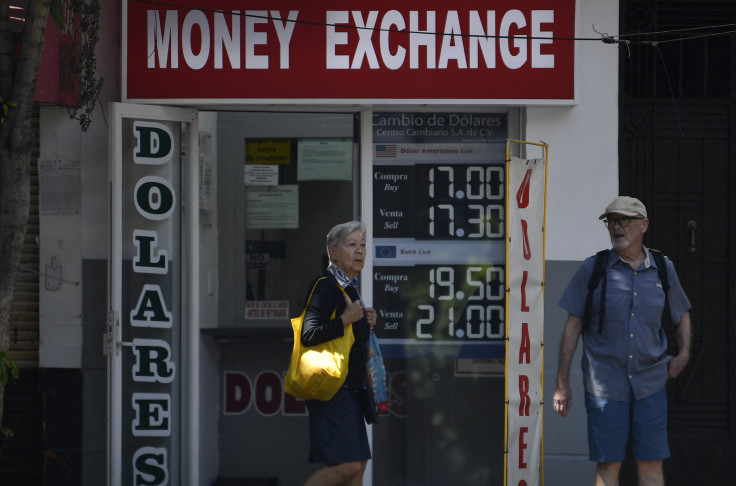
Undocumented migrants are now bracing for President-elect Donald Trump's second term, where he has promised to carry out the largest mass deportation operation in American history. But as many questions on the logistics of the promise remain largely unanswered, it is not just migrants in the U.S., but rather also their families at home who depend on financial assistance, who fear for their future stability as the GOP leader re-enters the White House.
Immigration has over the years transformed itself into an economic engine for towns across the world. Over decades, in Mexico, entire economies in small villages have been brought about by Mexican migrants in the U.S. who send their hard-earned dollars back home.
That is the case of Francisco Villa, a small village in Tamaulipas, Mexico. Over the past 30 years, about half of the 3,000 residents of the town moved up north to the United States, bringing in their cash to help their families and communities, according to a recent report by The Washington Post.
Those who left the Villa later became construction workers, gardeners, cooks and nannies in the U.S. The financial assistance they brought back home helped establish the town's first high school, pave the dirt streets, buy computers for the classrooms and more.
But the town's residents, though they are not within Trump's jurisdictions, are nevertheless fearing his sweeping immigration crackdown, as he takes aim at more than 11 million people living in the U.S., nearly half being Mexican, according to The Post.
At the national level, remittances sent from the U.S. are a lifeline in Mexico. In 2023, Mexico took in about $63 billion in remittances, more than from tourism or oil exports. The country has overtaken China to become the world's No. 2 recipient of remittance, behind India.
But Mexico is not the only country highly reliant on remittance. By comparison, Central America receives less migrant cash, but depends much more on it. In Guatemala, Honduras, El Salvador and Nicaragua, remittances accounted for between 20 and 30 percent of national income in 2023, according to the Inter-American Development Bank. But unlike Mexico, a major manufacturing country, "they don't have an alternative economic growth strategy," Manuel Orozco, director of the migration and remittances program at the Inter-American Dialogue think tank, told The Washington Post.
It remains unclear how much of that cash flow could decelerate under Trump. For one, his mass deportation plans could face numerous logistical and legal obstacles, starting with a lack of detention space and enforcement officers. At the same time, Trump has previously not delivered on his mass deportation promises, deporting fewer people than his predecessor, Barack Obama, during the Republican's first term.
But despite major doubts on the realization of the program, Mexico is already preparing to receive a large number of citizens back home.
Mexico's government is setting up 25 large shelters on the border to receive deportees, Baja California Gov. Marina del Pilar Avila Olmeda announced late-December. The facilities will reportedly only house Mexican migrants for a few days before they are sent to their hometowns in the interior of Mexico.
"These shelters that are being planned are for those being repatriated who are coming from north to south, but no foreigners, only Mexicans, this must be made clear— Mexicans will be welcomed back to their country and their human rights will be respected," Avila Olmeda said.
Mexico has also contracted with hundreds of American lawyers to assist people challenging their removal, even launching a phone app with an "alert" button that migrants can press— altering the nearest Mexican consulate— when they're swept up in deportations.
© 2025 Latin Times. All rights reserved. Do not reproduce without permission.




